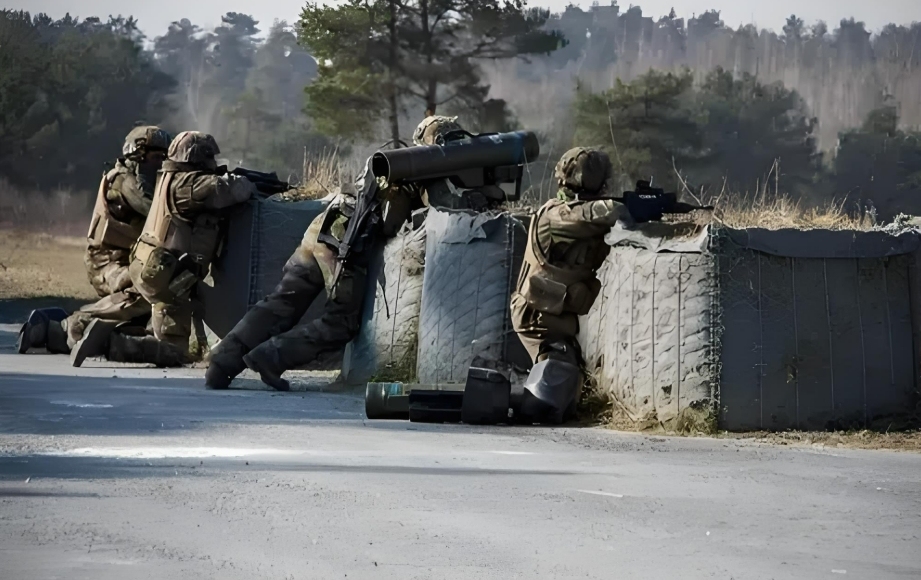By Ling Yunzhi

The photo shows a joint exercise of Franco-German Brigade of the Eurocorps.
It has long been a persistent goal for the EU to pursue autonomous defense. Despite its aspirations to develop an independent military force and achieve defense integration, tangible progress has remained elusive.
With the Trump administration taking office, US-Russia relations have shown signs of warming, leading to rising anxiety across Europe. Within weeks of his inauguration, Donald Trump repeatedly voiced opinions on the Russia-Ukraine conflict that were different from previous US stances. On February 12, Donald Trump said from the Oval Office that he does not "think it's practical" to have Ukraine join NATO. In addition, US Defense Secretary Pete Hegseth remarked that European security is no longer a priority for the US. He emphasized that NATO's European members should shoulder greater financial responsibilities to ensure their own security, rather than relying indefinitely on America's protection.
Faced with such a situation, Europe has become acutely aware of its critical weakness in defense capabilities and has recognized the severe consequences of lacking strategic autonomy while closely following the US lead. As a result, the urgency and demand for strategic independence have surged, further accelerating the process of establishing a European Army.
However, the future of a European Army remains highly uncertain.
First, there is a lack of effective coordination mechanisms among European nations, making it difficult to achieve tangible results. Currently, divisions persist not only among the 27 EU member states but also between Eastern and Western Europe, and even between France and Germany, the two leading European powers, on the issue of defense integration. For example, at a recent emergency meeting in Paris, European nations were deeply divided over the issue of deploying peacekeeping troops to Ukraine. Apart from the UK, which expressed willingness to send troops, countries like France and Germany showed no intention of deploying forces to Ukraine at this stage. Without the support of France and Germany, it would be difficult to implement the formation of a joint European force.
Secondly, the US has a highly complex attitude toward the EU's efforts to strengthen its own defense cooperation. On one hand, Washington expects Europe to increase military spending, take on more responsibility for its own defense within the NATO framework, and ease the burden on the US as much as possible. On the other hand, the US remains deeply skeptical of Europe's current push for defense autonomy, fearing that an independent European army could weaken American influence on the continent, reshape the global strategic landscape, and potentially hinder Washington's broader geopolitical objectives.
Finally, NATO remains a major obstacle that Europe cannot avoid in its pursuit of defense independence. NATO believes that Europe's push for military development outside of the alliance would lead to resource competition, create divisions, and challenge its leadership as the primary defense organization in Europe. Moreover, many smaller European countries, particularly those in the Baltic region, as well as Eastern European nations like Poland and Romania, lack confidence in Europe's independent defense capabilities. They continue to rely on the US-led NATO for security, showing little interest in the formation of a European Army. It is foreseeable that if these conflicts remain unresolved, the EU's plan to establish a European Army will face significant challenges and the process of deepening defense integration will remain a long and difficult road.
Editor's Note: Originally published on thepaper.cn, this article is translated from Chinese into English and edited by the China Military Online. The information and opinions in this article do not necessarily reflect the views of eng.chinamil.com.cn.













